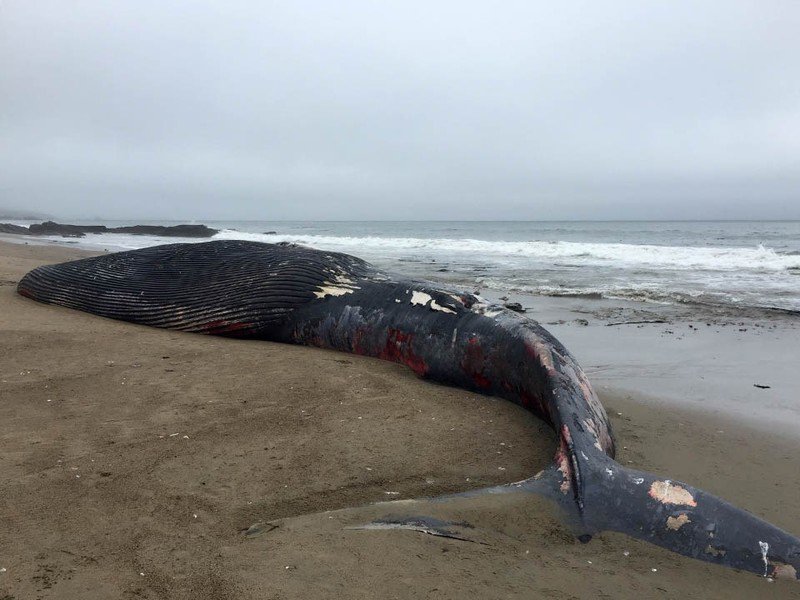For Immediate Release, January 14, 2021
|
Contact: |
Brian Segee, Center for Biological Diversity, (805) 750-8852, bsegee@biologicaldiversity.org |
Lawsuit Aims to Protect Endangered Whales in California Shipping Lanes
Feds Failed to Study Mandatory Speed Limits, Update Biological Opinions
SAN FRANCISCO— The Center for Biological Diversity and Friends of the Earth sued the Trump administration today for failing to protect endangered whales from being struck by ships using ports in California. Ship strikes are a leading cause of death for blue, fin and humpback whales off California’s coast.
The groups sued the U.S. Coast Guard and National Marine Fisheries Service for failing to meet Endangered Species Act consultation requirements. This failure resulted in a flawed biological study that didn’t consider actions proven to reduce ship strikes, including mandatory vessel speed limits and routing changes to reduce shipping traffic’s overlap with areas of high whale densities. The administration was notified twice last year that it was violating the law.
“Ship strikes kill way too many endangered whales along California’s coast. The feds are ignoring this carnage rather than addressing it with simple actions like mandatory speed limits,” said Brian Segee, an attorney at the Center. “We should let science guide how shipping lanes are placed and managed. The Endangered Species Act works, but only if federal officials follow its requirements.”
Studies have found ship strikes, already known to be a leading cause of death and injuries to whales, are more lethal than previously understood.
Federal records document at least 27 whales struck by ships in California over the last three years, including a dead fin whale draped across the bow of a container ship as it entered San Francisco Bay in 2018. Scientists say the actual number could be 20 times larger, since most dead whales sink.
“The Trump administration had ignored the impact of vessel traffic on endangered species for far too long,” said Hallie Templeton, deputy legal director at Friends of the Earth. “The science is clear: Better management of vessel speeds and routes will make a difference, yet federal agencies are refusing to conform. After multiple notices of unlawful agency action, we are now turning to the federal court system to hold the federal government accountable.”
Today’s lawsuit covers shipping lanes through the Santa Barbara Channel that access ports in Los Angeles and Long Beach, as well as shipping lanes in the approach to San Francisco Bay ports. It calls for the Fisheries Service and Coast Guard to revisit their consultation and update the Fisheries Service’s 2017 biological opinion to consider ship strike avoidance measures, including vessel speed limits and routing changes.
In 2019 the Center successfully secured a proposal from the federal government to designate 175,812 square miles of the Pacific Ocean as critical habitat for endangered humpback whales and won new rules protecting whales from being entangled in fishing gear off California’s coast.
The Center and its allies also contested plans to increase oil-tanker traffic into San Francisco Bay that could harm whales. The group has long called for shipping speed limits and other maritime rules to better protect imperiled marine life.

The Center for Biological Diversity is a national, nonprofit conservation organization with more than 1.7 million members and online activists dedicated to the protection of endangered species and wild places.
Friends of the Earth fights to protect our environment and create a healthy and just world. We speak truth to power and expose those who endanger people and the planet. Our campaigns work to hold politicians and corporations accountable, transform our economic systems, protect our forests and oceans, and revolutionize our food & agriculture systems.

